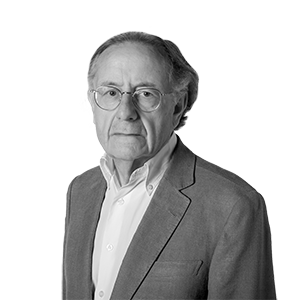

1. Truth. In 1943, Alexandre Koyré denounced the truth that does spring from its universality but rather from its conformity to the spirit of race, nation or social class. He called it "the modern lie". The foundations are still the same, but the potential for deception has not stopped growing, even if the forms may be milder than at the time when the Russian-born philosopher of science, who made his career in France, was writing.
Society has accepted lying as a part of mass advertising (whether commercial or political) quite naturally and, in the digital realm, it is spreading as it pleases with complete impunity. We all know that lies are inherent to a species articulated on the will to power; likewise, from the priest's homily at Sunday mass -the main means of communication in these lands for many centuries- to the digital colonisation of our brains, there exists a substantial mutation in the systems used to build truth. We have never had so many instruments to approach knowledge and, therefore, to deal with the fictions that feed and comfort the human experience, but neither have we had so much potential to normalise lies by giving them the status of collective truth.
However, what has not changed since Koyré is the role of lies: the construction of the balance of power between real or potential enemies. And this is what often makes it difficult to discern the wheat from the chaff in political and social debate, to reconstruct the truth in discourses that do not aim towards knowledge but towards setting the limits between us and the others. This entails a will of adhesion, that is to say, of acceptance of one's own lie, cohesively binding a given community group. And the matter is aggravated when those who are supposed to provide the critical judgement sign up to the logic of confrontation.
2. Identity. "Freedom, equality, identities", said the latest cover of Philosophie Magazine as if two and a half centuries later fraternity had been swallowed up by communitarianism. That is to say, as if the citizen had had to surrender his autonomy to the superior entity of belonging. As Najat El Hachmi has described, this game places many people in a painful crossfire: irremediably identified as strange because of their physical, sexual or cultural traits and at the same time subjected to the demands of those who claim to have authority over them because of their condition of origin. A system of tensions that not only conditions people's individual freedom, but often generates fractures and conflicts of exclusion within the very spaces of identity in the name of political corrections.
As social beings, the individual cannot walk alone, but what is his degree of autonomy - measured in terms of freedom and equality - at this point? If we want to talk about progress, that is, improvement of the human condition, this is a central question. The sensation of living in a kind of continuous present probably has to do with the difficulty of living one's own condition in freedom from multiple belongings. At a time in which options are increasing but in which the possibilities of making them effective demand collective defence, confrontational fronts appear everywhere. And it is increasingly difficult to build bridges, because many communitarianisms believe that their survival lies in their ability to blow them up. It is a dead end, in which the will for emancipation constantly clashes with the will for power within each ideological or identity family.
And all this under the threat of powerful systems of social control that are increasingly able to decide on the behaviour of each individual, in a logic that has replaced desire with drive. I would like to believe that the break caused by the pandemic can make us rethink all this. But I am afraid that Michel Agier is right when he says that "fear has become a global mean", both in its existential and social aspects. Let's start by calling things by their name and perhaps then we will be able to move forward.
Josep Ramoneda is a philosopher
